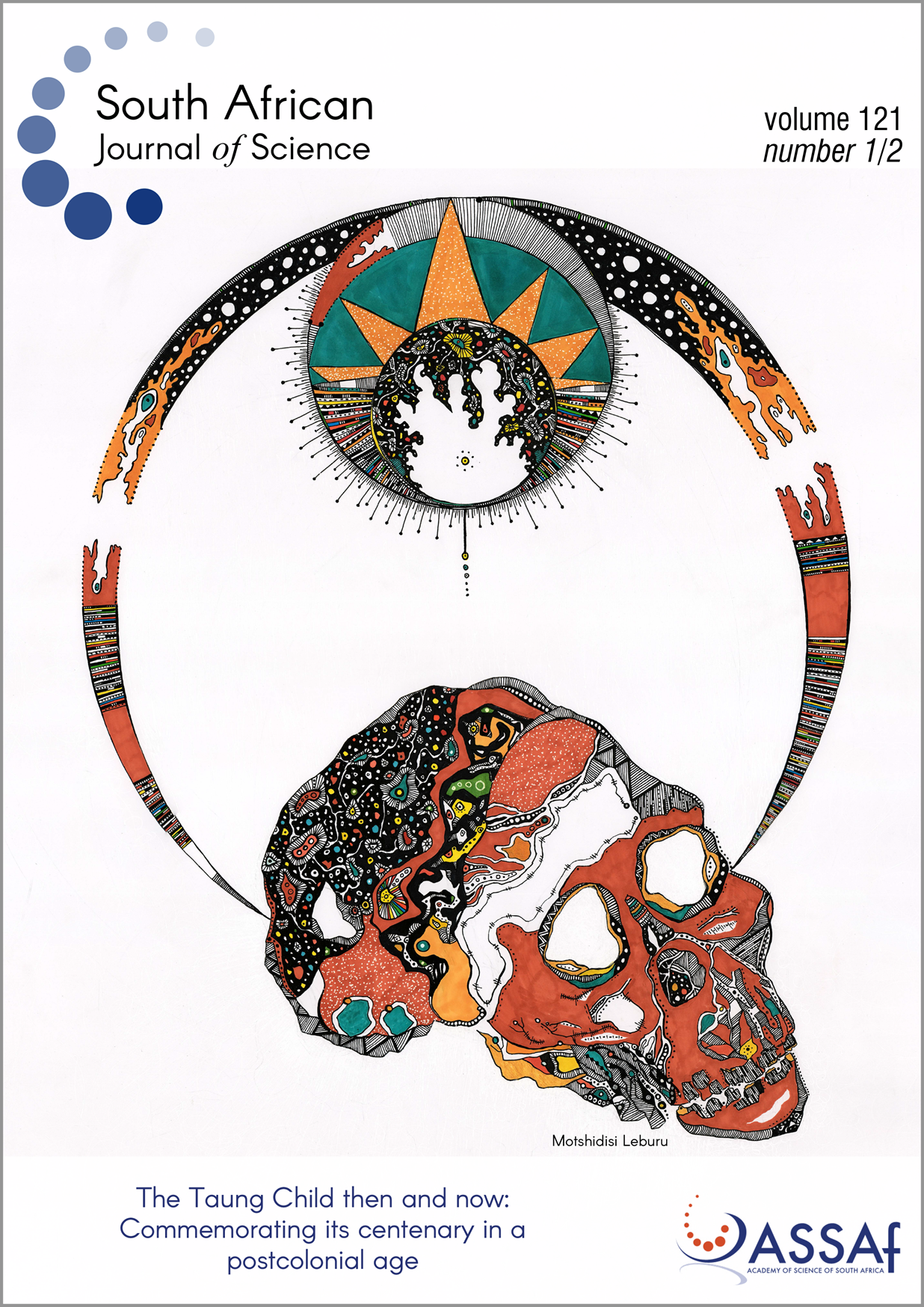100 Years of palaeo-research and its relevance for transformation and social cohesion in South Africa
DOI:
https://doi.org/10.17159/sajs.2025/18624Keywords:
Taung, funding, palaeoscience, research, social cohesion, social responsiveness, transformationAbstract
Australian-born Raymond Dart arrived in South Africa in 1922 and subsequently gave the name Australopithecus africanus to the fossilised juvenile skull discovered by mine workers in Taung, North West Province. After this discovery, and its announcement in 1925, the discipline of palaeoanthropology grew exponentially on the continent. This centennial milestone necessitates reflection on the role of science in society, with a critical look at the relationship between palaeosciences, the theories of human evolution, and the researcher’s interaction with southern African Indigenous peoples. Here we examine the palaeoanthropological scientific practice in southern Africa and suggest ways to decolonise science, and its narratives, in the future. To achieve meaningful transformation and social cohesiveness, we discuss measures to counter the wrongs of the past through meaningful and socially responsive practices such as equitable funding schemes, meaningful collaboration, and doing away with ‘helicopter research’.
Significance:
Palaeoscience practice and narratives in southern Africa are in need of decolonisation. We call for meaningful transformation and social cohesiveness, through measures to counter the wrongs of the past. To do this, we suggest meaningful and socially responsive practices such as equitable funding schemes, meaningful collaboration, and doing away with ‘helicopter research’.
Downloads
Published
Issue
Section
License

All articles are published under a Creative Commons Attribution 4.0 International Licence
Copyright is retained by the authors. Readers are welcome to reproduce, share and adapt the content without permission provided the source is attributed.
Disclaimer: The publisher and editors accept no responsibility for statements made by the authors
How to Cite
- Abstract 314
- PDF 348
- EPUB 130
- XML 127
- Peer review history 284
- Abstract in Setswana 155












.png)